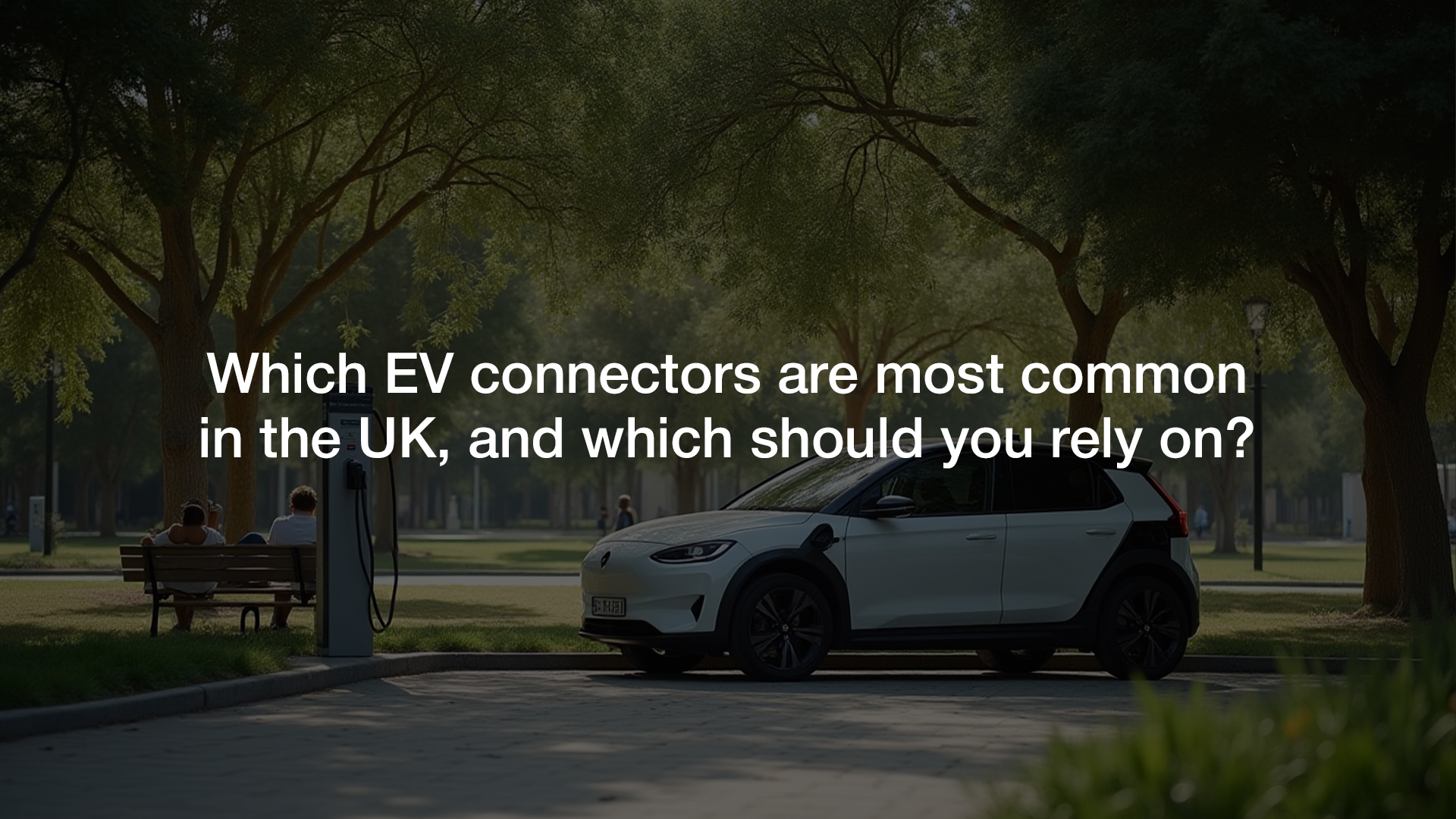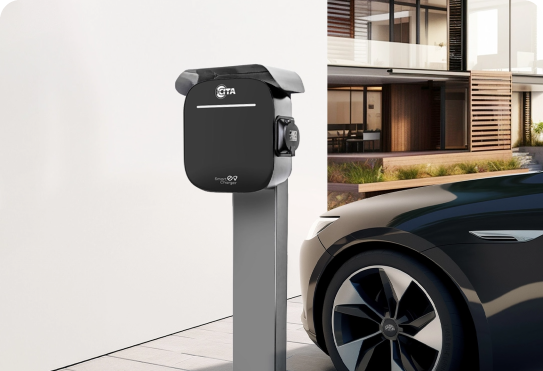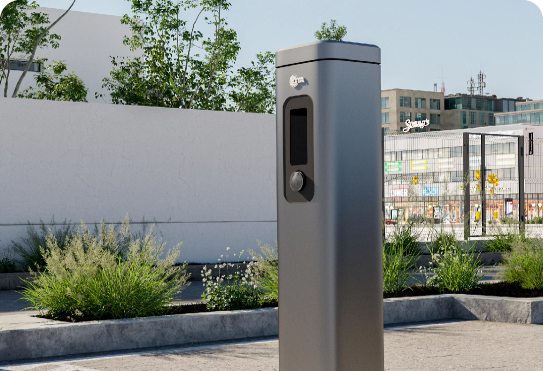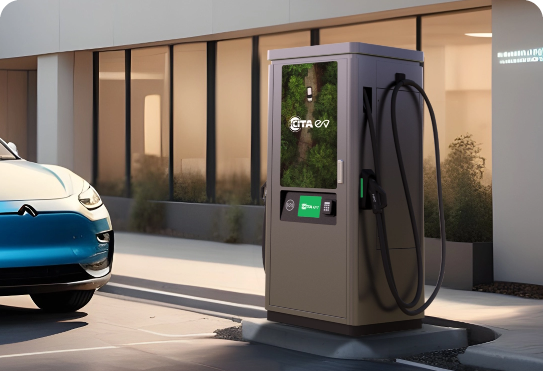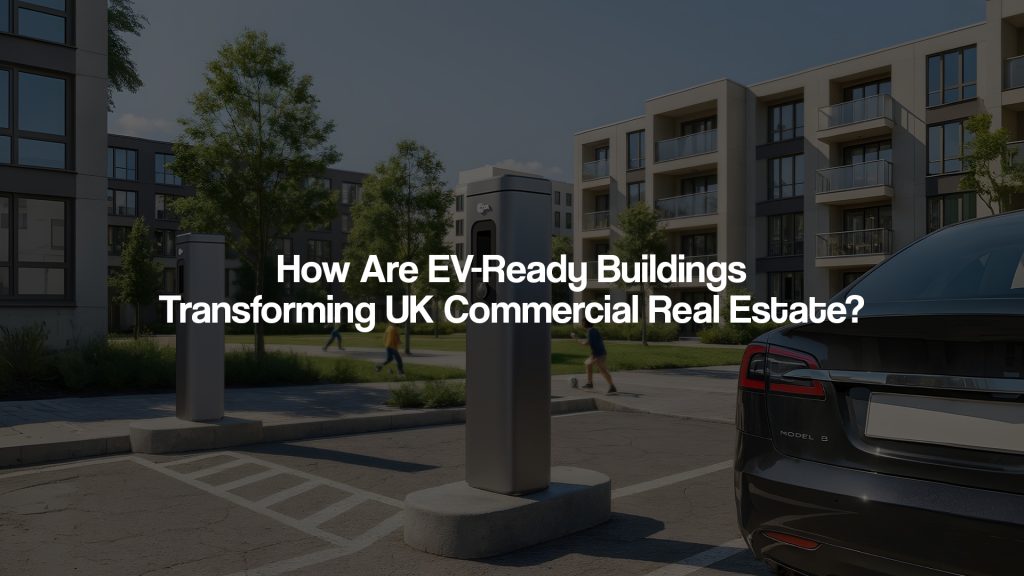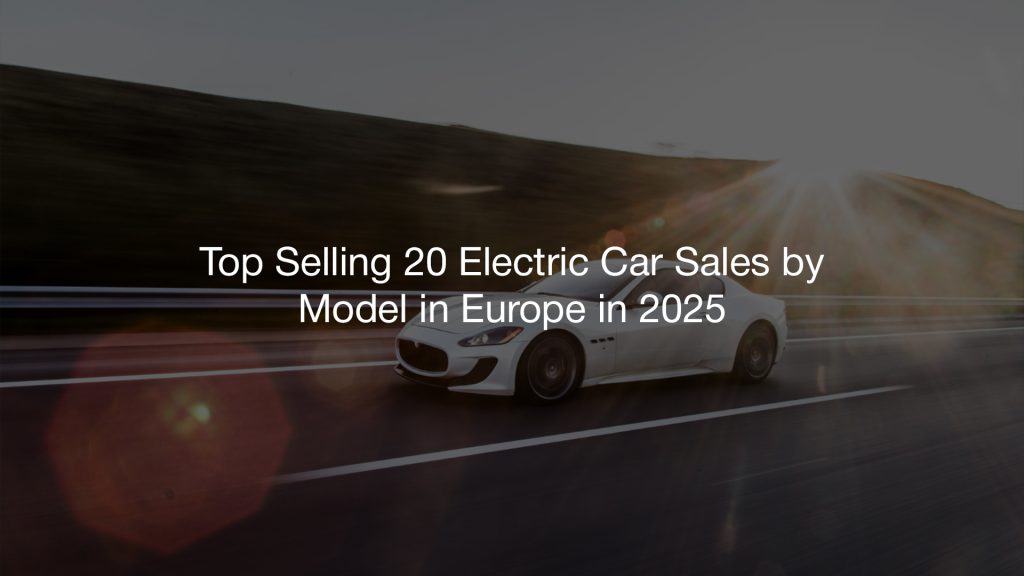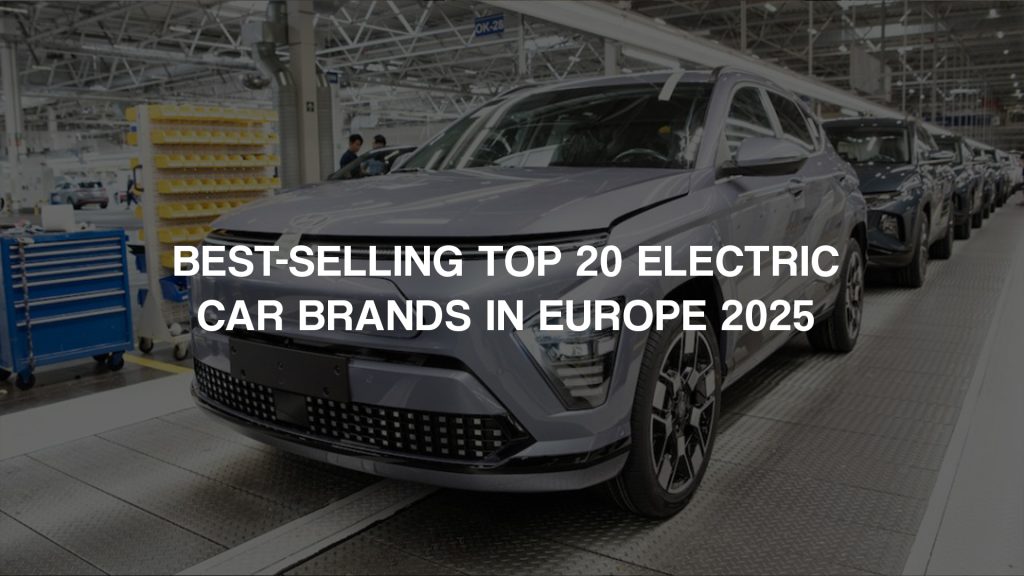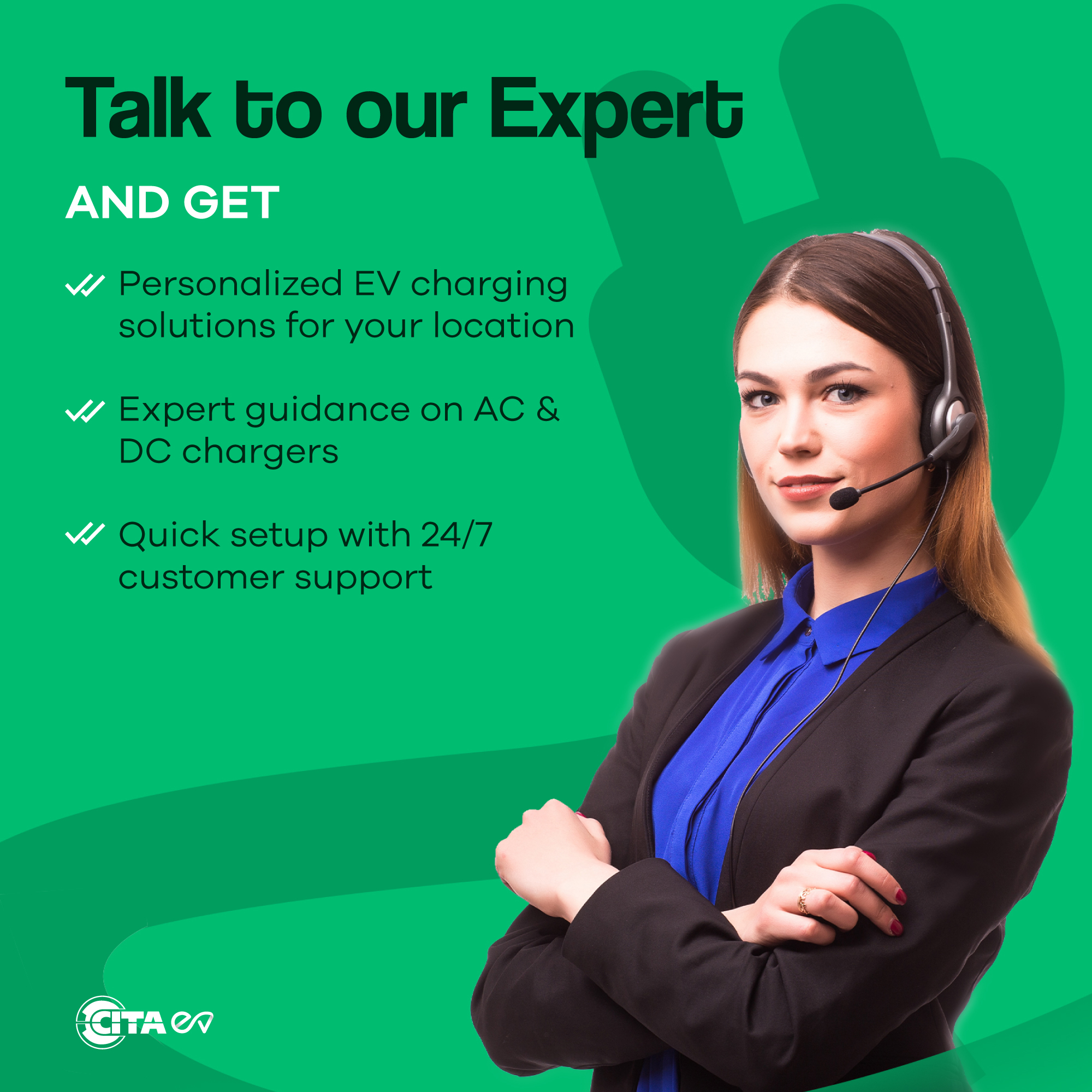Have you ever wondered which EV connectors are most common in the UK and which ones you should depend on for daily EV charging? With over 73,000 public chargers installed across the UK by late 2024 – a growth of more than 36% in just one year – connector choice has become more important than ever. Rapid and ultra-rapid chargers alone grew by nearly 80%, showing the country’s strong shift towards faster charging.
At the same time, surveys reveal that while 70% of UK drivers expect to buy an EV within five years, many remain unsure about compatibility.
In this guide, you’ll gain clarity on the most widely used connectors, their compatibility with AC EV chargers, DC EV chargers, Fast and Super Fast EV Chargers, plus insights on choosing the best options for home and commercial use.
The EV Charging Landscape in the UK
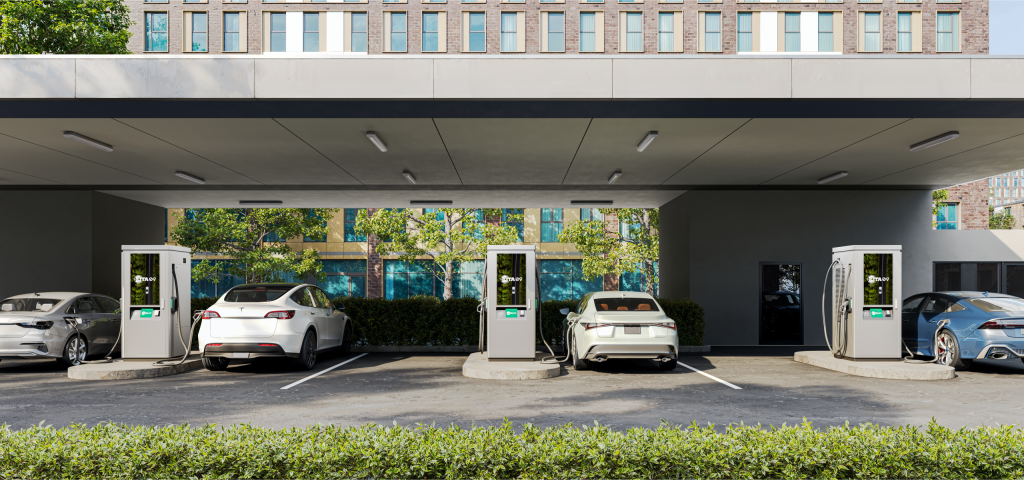
The UK EV market has seen tremendous growth, with over 1.2 million electric cars now on the roads. With this increase, the EV charging infrastructure has expanded, offering thousands of public charging points across cities, highways, and residential spaces. But not all EV chargers and connectors are the same. Depending on whether you use a residential EV charger supplier or a commercial EV charger supplier, the connector type can vary.
To ensure compatibility, EV drivers need to understand which connectors dominate the UK market and what charging speeds they can expect. Whether you’re using an AC EV charger at home or relying on DC Fast EV Chargers during long trips, connector knowledge helps avoid charging hassles.
What Are EV Connectors?
EV connectors are the physical plugs that link your electric vehicle to an EV charger. They ensure the safe transfer of electricity from the charger into the vehicle’s battery. Different EV connectors exist for AC charging and DC charging, each supporting various charging speeds and standards. In the UK, Type 2 connectors dominate AC EV chargers, while CCS connectors lead in DC Fast EV Chargers and Super Fast EV Chargers.
The choice of connector affects compatibility, charging speed, and convenience, making it crucial for EV owners to understand which ones their car supports and which are widely available.
Most Common EV Connectors in the UK
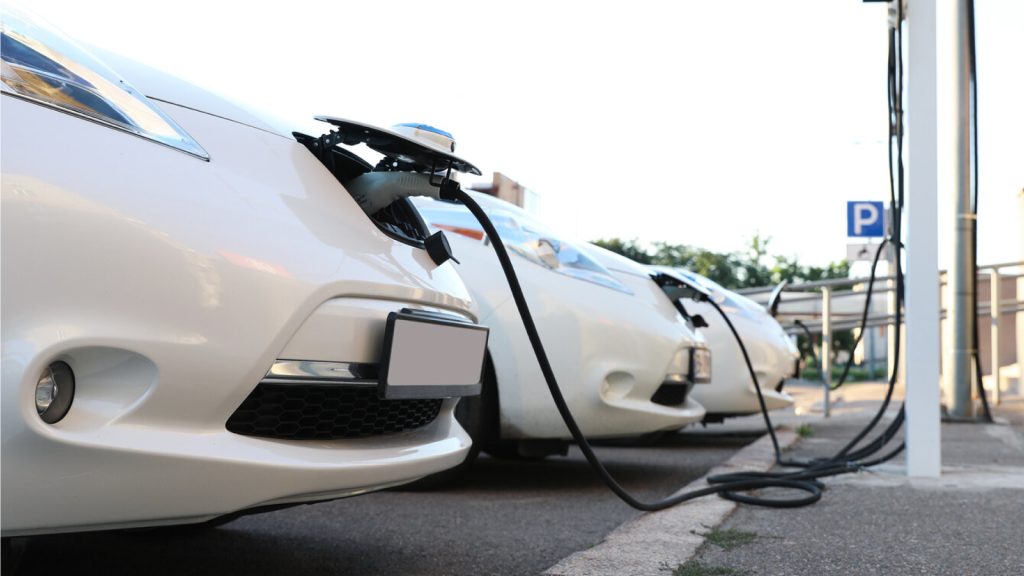
As the EV charging network continues to expand across the UK, certain connector types have emerged as the most reliable and widely available. Understanding these options is crucial for every EV driver to know which connector to expect at public charging stations, workplaces, or residential setups.
Below are the key EV connectors dominating the UK market and how they differ.
1) Type 2 Connector (Mennekes) – The UK’s Most Popular AC Connector
The Type 2 connector is the dominant AC EV connector in the UK, supporting both residential and public charging stations. Compatible with 7 kW home EV chargers, 22 kW commercial EV chargers, and 44 kW dual AC EV chargers, it ensures a reliable and smooth charging experience.
Popular EVs like the BMW i3, Nissan Leaf, Tesla Model 3, and Jaguar I-PACE utilize this connector, making it ideal for everyday charging and smart EV charging solutions.
Some key advantages of the Type 2 connector include:
- Fast and reliable AC charging for homes and workplaces.
- Wide vehicle compatibility with most UK EVs.
- Supports smart charging features like load balancing and scheduled charging.
2) CCS (Combined Charging System) – Speed and Efficiency on the Go
CCS connectors are designed for DC EV chargers, powering Fast EV Chargers and Super Fast EV Chargers from 60 kW up to 360 kW. This connector is perfect for long-distance travel, quick top-ups, and commercial fleet charging.
Vehicles such as the VW ID.4, Hyundai Kona Electric, Mercedes EQC, and Audi e-tron use CCS, making it the most reliable choice for rapid, efficient charging.
Why CCS is preferred by EV drivers:
- Enables ultra-fast charging for motorway and long-distance trips.
- Supported by a wide range of modern EVs in the UK.
- Ensures future-proof compatibility with upcoming fast and super-fast EV chargers.
3) CHAdeMO Connector – The Legacy Fast Charger
The CHAdeMO connector was once the standard for DC fast charging but is now mostly used for older EV models. It supports vehicles like early Nissan Leaf versions, Mitsubishi Outlander PHEV, and Kia Soul EV.
Available at some DC EV chargers, CHAdeMO remains functional for rapid charging, though most UK infrastructure is shifting to CCS connectors for future-proofing and greater compatibility.
Why some drivers still use CHAdeMO:
- Provides fast charging for older EV models.
- Supported at select DC EV charging points in the UK.
- Serves as a reliable option for legacy EVs in residential setups.
4) Type 1 Connector (J1772)–Early Generation AC Charging
Type 1 connectors are primarily found in older EVs and imported models, including early Nissan Leaf, Mitsubishi i-MiEV, and Chevrolet Volt. They support slower AC charging rates compared to Type 2, but are still functional for home and workplace setups.
While Type 1 is becoming less common, it remains relevant for legacy EVs needing reliable AC EV chargers.
Key points about Type 1 connectors:
- Supports AC charging for early-generation and imported EVs.
- Limited compatibility with modern smart EV chargers.
- Useful for maintaining charging access for older vehicles.
AC vs. DC Charging: Which EV Connectors Apply?
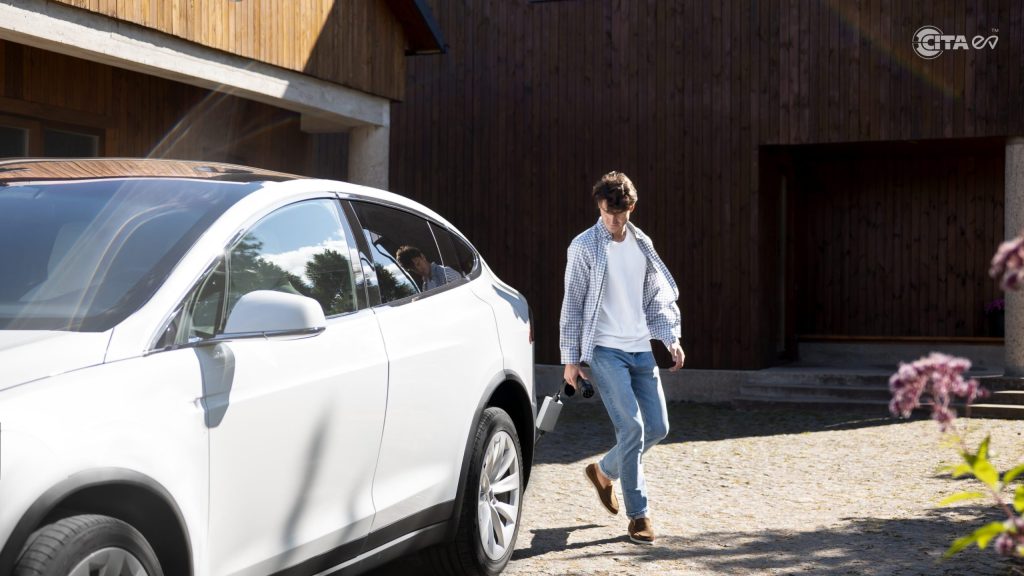
Understanding the difference between AC and DC charging is essential for EV owners. Knowing which connector applies to each type helps you plan home and public EV charging effectively.
AC EV Chargers
AC EV Chargers typically use Type 2 connectors, perfect for overnight residential charging or workplace charging. Speeds range from 7 kW to 22 kW and up to 44 kW for dual AC units.
AC charging is ideal for routine, longer-duration charging sessions, offering energy efficiency and compatibility with smart EV charger technology that can balance loads and schedule charging times.
DC EV Chargers
DC EV Chargers rely on CCS or CHAdeMO connectors, delivering fast charging capabilities from 50 kW to over 350 kW. These are crucial for public stations and highway journeys where speed is important. DC charging bypasses the onboard AC-DC converter, allowing for higher power transfer directly to the battery.
This makes it perfect for quick top-ups, commercial fleets, and long-distance travel. Super Fast EV Chargers with CCS can significantly reduce charging times, sometimes providing an 80% charge in less than 30 minutes.
Which EV Connectors Should You Rely On?
If you’re driving a modern EV in the UK, the Type 2 connector for AC charging and the CCS connector for DC charging are the ones to depend on. These EV connectors are not only widely available but also mandated in many installations, ensuring future-proof reliability.
While Type 1 and CHAdeMO EV connectors are still around, their relevance is fading as the industry shifts toward standardization.
Choosing the Right Connector for Your EV Charging Needs
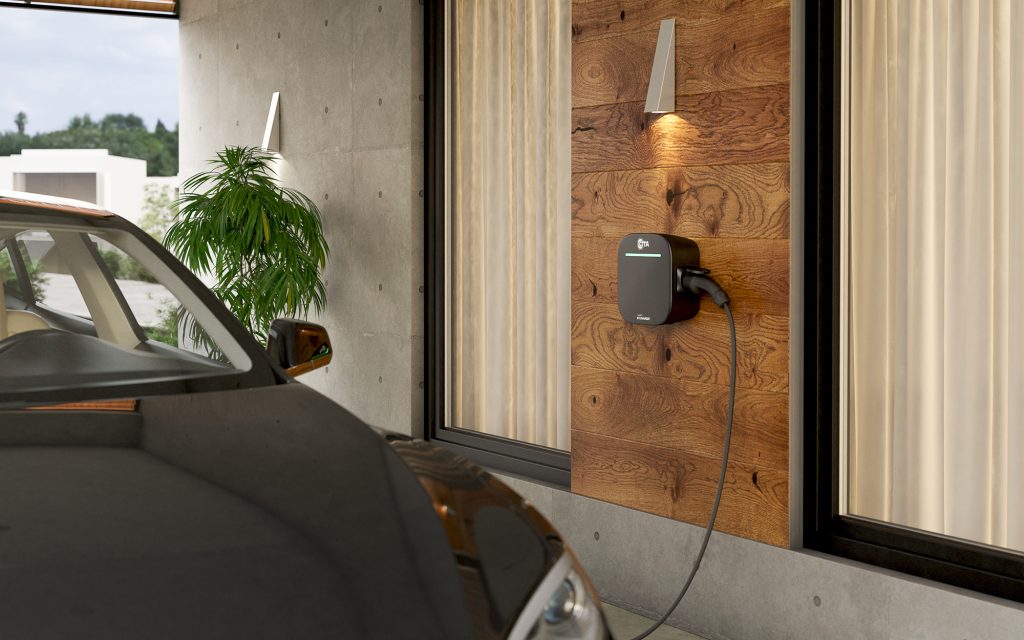
When it comes to EV charging in the UK, knowing the right EV connectors makes all the difference. For home charging, rely on Type 2 connectors with AC EV chargers. For fast on-the-go charging, choose CCS connectors with DC Fast EV Chargers or Super Fast EV Chargers. Staying aligned with these standards ensures convenience, speed, and future compatibility.
CITA EV Charger, a leading EV charger manufacturer and supplier in the UK, provides both residential and commercial solutions with Certified EV Chargers and Approved EV Chargers that meet strict standards like UKCA and CE. With AC and DC options, warranty support, and smart features, CITA EV Charger ensures a seamless EV charging journey.
Whether you’re looking for a reliable home setup or a commercial EV charging solution, choosing the right EV connectors and the right supplier will shape your EV experience.
Explore CITA EV Charger’s range of smart, certified charging solutions and take the first step toward future-ready EV charging today.



